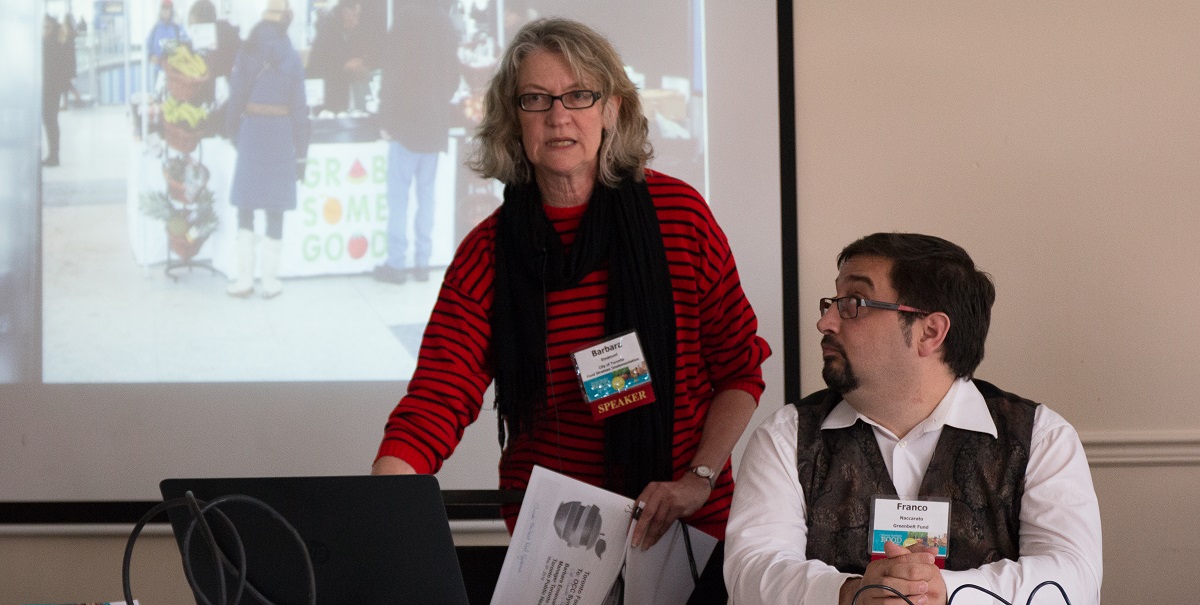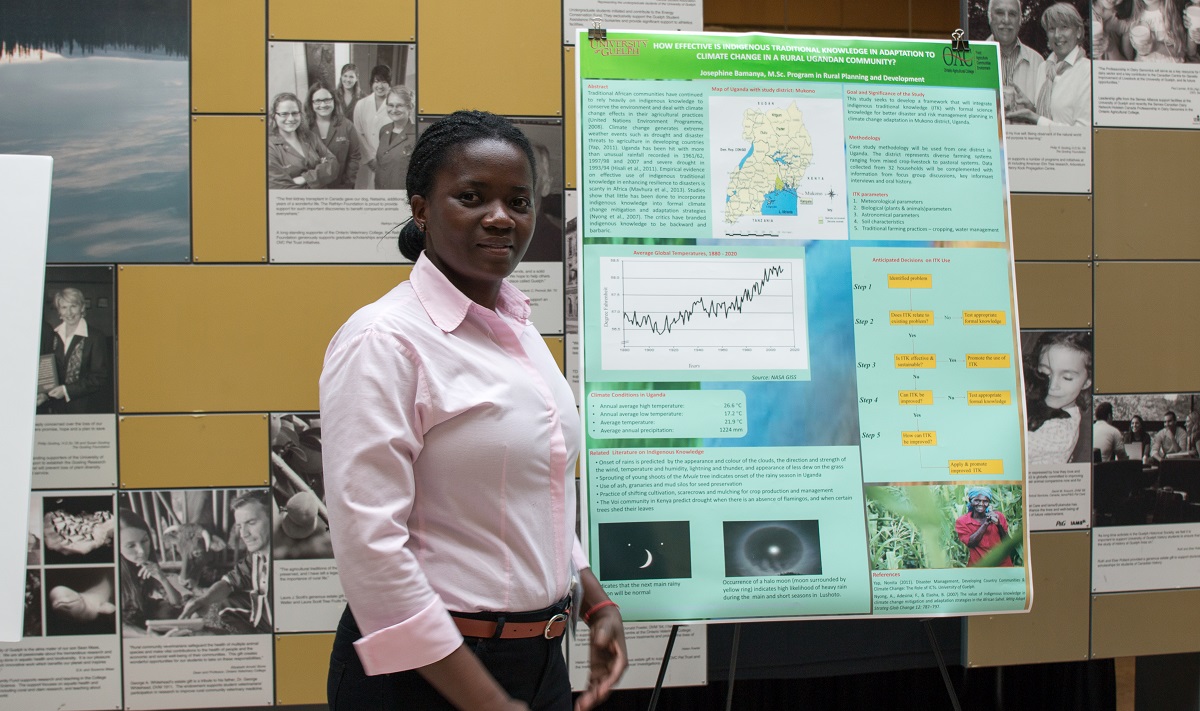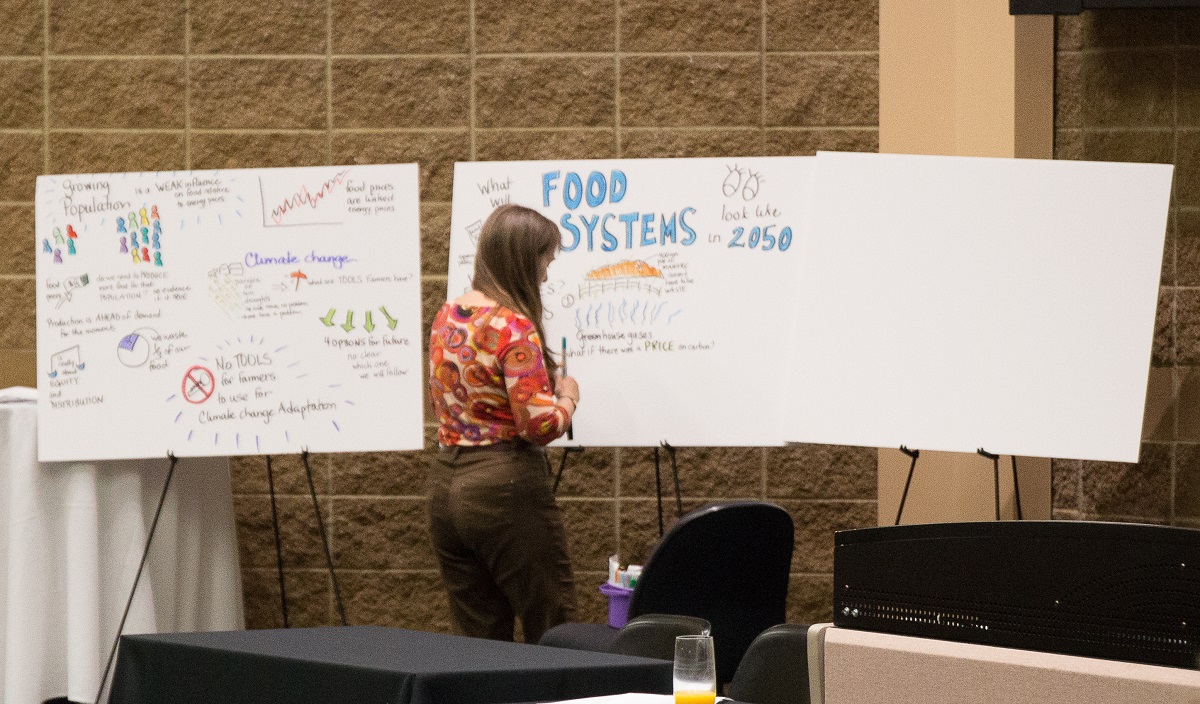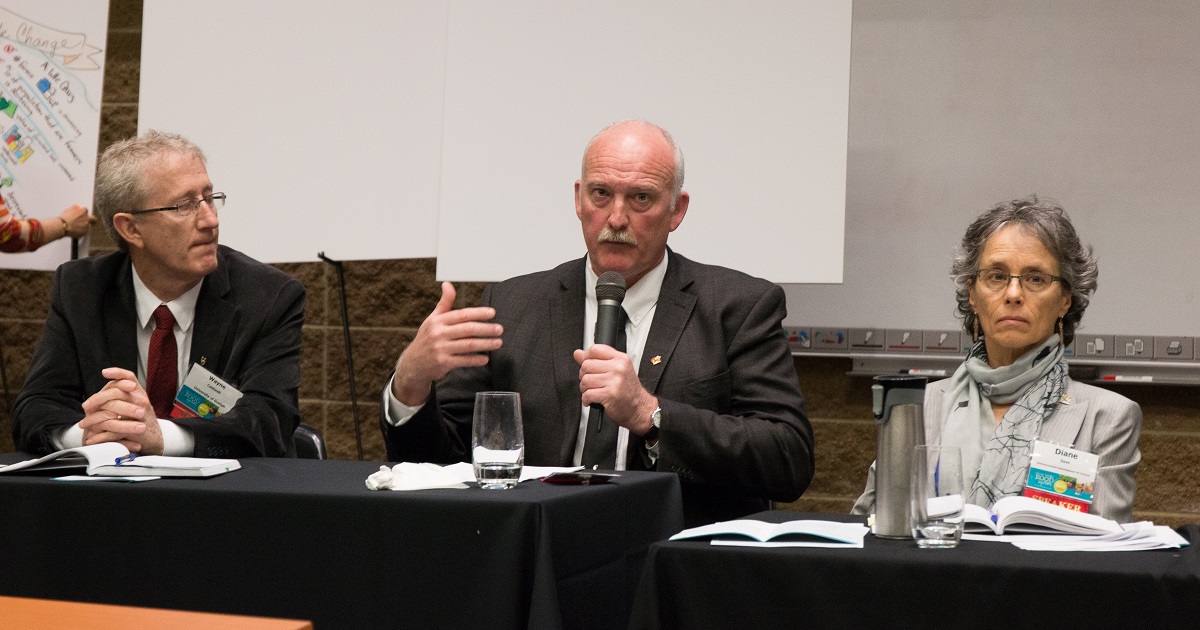May 13, 2016
Ontario Climate Symposium 2016 Stimulates Discussion on the Future of Food in the Greater Golden Horseshoe
The Ontario Climate Consortium team would like to thank everyone who participated in our 2016 Ontario Climate Symposium. Thanks go especially to our main sponsors: the University of Guelph, who served as fantastic hosts, the Ontario Ministry of Agriculture, Food and Rural Affairs, which helped us bring together a wonderful roster of speakers, and Toronto and Region Conservation, host to the Ontario Climate Consortium (OCC) secretariat, which led the organization of the Symposium.
From the presentations, to the student poster competition, to the formal and informal conversations that took place throughout the day, the Symposium exceeded all of our expectations. Below you’ll find a number of post-event announcements we’d like to share, as well as a personal reflection from Ian McVey, one of the lead organizers of the Symposium.
Stay tuned via the OCC Newsletter for future updates, as we post additional media content (video recordings and photos) as well as the Symposium Summary Report.
SPEAKER PRESENTATIONS
Along with the final Symposium program, we have made the speaker presentations available for download. We will be reflecting on these over the coming weeks as we begin to develop our Symposium outcomes report, which will encapsulate the key takeaways from the day. Thank you again to all of our speakers.

STUDENT POSTER COMPETITION
This year’s student poster competition featured 12 outstanding submissions by students from across Ontario. Thanks to generous contributions from sponsors Conservation Ontario and Enviro-Stewards, we are able to award prizes of $1,000 and $500, for the winner and runner-up, respectively. After a careful count of the ballots submitted by attendees, we are pleased to announce that the top prize goes to Brock University’s Zachary Harmer. The runner-up prize will be split between Brennan Vogel from Western University and Uzayrabdullah Siddiqui from Carleton University. Congratulations to our winners, and thanks to all students who participated.

FEEDBACK SURVEY
If you haven’t had a chance already, we encourage you to provide your feedback on the event, using the brief, two-question survey we have created here. Your feedback will inform planning for future Symposia and other OCC events.
SYMPOSIUM SUMMARY REPORT
The OCC team has a rich seam of content to mine as we work to identify the key messages and takeaways from the Symposium. Thanks to the contributions of our student volunteers, we have a full set of notes from the morning plenary and afternoon workstream discussions. And thanks to Charlotte Young from PICTURE your Thoughts we have a masterful graphic recording of the morning’s sessions.

We invite everyone who attended to share your reflections on the Symposium using the comments form below. As time permits, we will be contacting some of you directly to ask for your impressions and insights. If you haven’t heard from us but would like to get in touch to discuss the 2016 event, please email imcvey@trca.on.ca.
These reflections, along with video recordings and social media content, will feed into the Symposium summary report, which we’ll be posting on this site and disseminating to stakeholders across the province. To kick off the conversation, OCC’s Ian McVey offers his own take on the event.

A PERSONAL REFLECTION FROM OCC PROJECT MANAGER IAN MCVEY
Our 2016 Symposium clearly communicated the importance of protecting and enhancing remaining farmland in the Greater Golden Horseshoe region, while also highlighting divergent pathways forward for the local agri-food sector: Will we march farther down the path of industrial-scale agriculture, relying on advanced technologies and larger farms to increase production of cash crops such as corn, soy and wheat for the global food market, or will we choose to favour local and regional food systems, and look to diversify production and ownership models?
This, in many ways, is the same kind of choice facing other socio-economic sectors grappling with the challenge of climate change. (A prime example: Ontario’s electricity system, which must weigh the option of large-scale nuclear plants versus distributed renewables.)

While choices facing us are not, in reality, starkly “either/or,” the decisions we make as we navigate the path forward will present both opportunities and threats for climate change mitigation and adaptation, and will inevitably involve economic benefits and trade-offs for different segments of society. It is essential that we, as a society, make these public policy decisions in a fair and transparent manner, engaging diverse stakeholders in the discussion.
We hope the 2016 Symposium has made an important contribution in this regard, and we look forward to disseminating content from the event that will keep the conversation going!
See you next year at York University for Symposium 2017!
Yours truly,
Ontario Climate Consortium Secretariat






